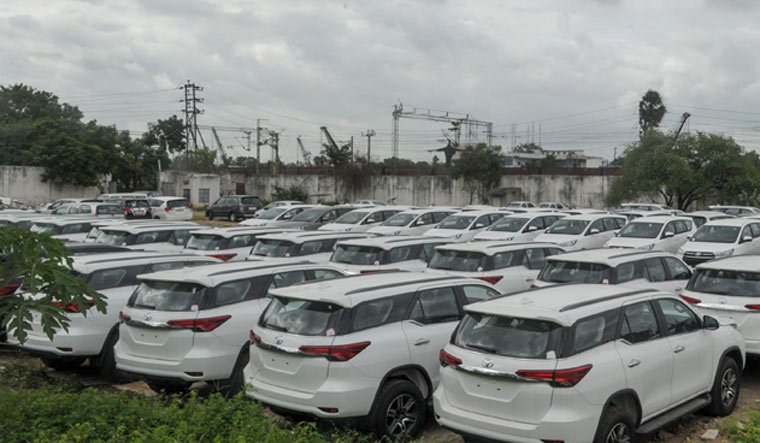Injecting doubts into the whole recovery narrative of the government and industry, the only auto segment that showed an increase in sales in the country in January was tractors. That's right, tractors. Unlikely if PM Narendra Modi will relish this irony, though
Registration figures released by the Federation of Automobile Dealers Association (FADA) show that bikes, cars and commercial vehicle sales all fell in January year-on-year, the first 'regular' month after the festive season. While bike registrations fell from 12.75 lakh to 11.63 lakh (9 per cent), passenger cars registered a drop from 2.94 lakh to 2.81 lakh (4.46 per cent).
The fall was particularly steep for three-wheelers (-51 per cent) and commercial vehicles (-25 per cent), both considered crucial indicators of economic growth and activity. Tractors continued their upbeat momentum with a growth of 11 per cent. In total, 15.92 lakh vehicles were registered last month, falling from 17.63 lakh in January last year, according to FADA.
“After witnessing a one-off growth in December, January auto registrations (overall) fell again by 10 per cent,” said FADA president Vinkesh Gulati. “Auto industry clearly misjudged the demand which returned post lockdown.”
There is a silver lining to the cloud, though. One pivotal reason attributed to the drop from December has been the acute scarcity of imported components, particularly semiconductors, for auto manufacturers. “Ïndustry's under-estimation and chipmakers prioritising higher volume and more lucrative consumer electronics market have created a vacuum of semiconductors,” points out Gulati.
That's no cold comfort, for pent-up demand, one of the factors driving auto sales through the post-lockdown months seems to have now faded. This was something industry veterans, most notably, Maruti Suzuki CEO Kenichi Ayukawa, had warned about during the ebullient high of the festive season. If that wasn't enough, recent price hikes, particularly those announced by two-wheeler makers, also hit the purchasing power of middle and lower-income customers.
A FADA note also points out how commercial vehicle sales have been affected also by the high costs after conversion to BS-6, which came into effect in April 2020. Vehicle financing not being back to normal has also affected this category from picking up.





